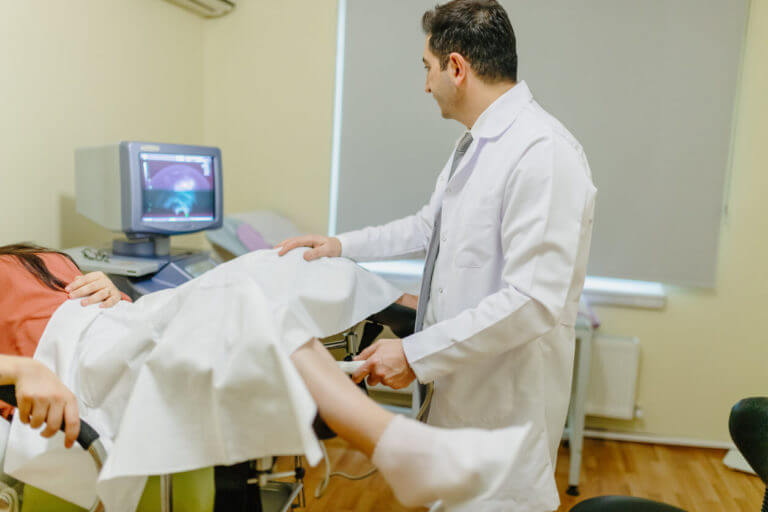
Women often hear about the importance of getting a Pap smear, but not many actually know what it is and why it’s necessary. While it may seem like an uncomfortable or even scary topic, understanding Pap smears is crucial for maintaining a woman’s health.
Whether you’re a young woman about to schedule your first appointment or simply looking to learn more about this routine exam, this article is for you. In this article, we will provide you with all the information you need to know about Pap smears.
What Is a Pap Smear?
A Pap smear is a medical test that checks for changes in the cells of the cervix, which is the lower part of the uterus (womb) that opens into the vagina. This test can help find early signs of cervical cancer and other health issues before they become serious.
Why Is It Called a Pap Smear?
The test is named after Dr. George Papanicolaou, the doctor who developed it. “Pap” comes from his last name, and “smear” refers to the way the sample of cells is spread on a slide to look at under a microscope.
Why Do You Need a Pap Smear?
Getting regular Pap smears is important, because it helps detect cervical cancer at an early stage – when it is easier to treat. It can also help your gynecologist find other problems like infections and inflammation.
Benefits of a Pap Smear
- Early Detection: Finding problems early can lead to better treatment outcomes.
- Preventive Care: Helps prevent cervical cancer by identifying and treating abnormal cells early.
- Peace of Mind: Knowing your reproductive health status can reduce worry and stress.
When Should You Start Getting Pap Smears?
Gynecologists usually recommend that women start getting Pap smears at age 21. How often you need one depends on your age and health history:
- Ages 21-29: Every 3 years.
- Ages 30-65: Every 3 years, or every 5 years if combined with an HPV test (a test for the virus that can cause cervical cancer).
- Over 65: You might not need Pap smears anymore if you’ve had normal results for several years in a row.
What Happens During a Pap Smear?
Many people feel nervous about getting a Pap smear, but knowing what to expect can help you feel more comfortable. Here’s a step-by-step guide on what happens during the test:
Step 1: Preparation
Before the test, you’ll change into a gown provided by the staff at your gynecologist’s office. You will be asked to lie down on an exam table with your feet in stirrups, which are supports that hold your legs up and apart.
Step 2: Speculum Insertion
The gynecologist will use a speculum, a small, smooth tool, to open the vaginal walls, so they can see the cervix. This may be a slightly uncomfortable, but not painful.
Step 3: Collecting Cells
Using a small brush or spatula, the gynecologist will lightly scrape some cells from the surface of the cervix. This part only takes a few seconds and might feel like a small pinch.
Step 4: Sending to the Lab
The collected cells are then placed on a glass slide or in a special liquid and sent to a lab. There, the cells are examined under a microscope to check for any abnormalities.
Step 5: Receiving Results
You’ll get your results back in a few days to a couple of weeks. Your gynecologist will explain what the results mean and discuss any next steps, if needed.
What Do the Results Mean?
The results of your Pap smear will fall into one of these categories:
- Normal: No abnormal cells were found in the cervix.
- Unclear: Some cells are slightly abnormal, but it’s unclear if they’re related to HPV or another issue. Further testing might be needed.
- Abnormal: Changes in the cells could indicate HPV or pre-cancerous changes. Your gynecologist will recommend further tests or treatment.
Follow-Up Tests
If your results are unclear or abnormal, your gynecologist might suggest additional tests, such as:
- HPV Test: To check for the presence of the human papillomavirus.
- Colposcopy: A closer examination of the cervix using a special magnifying instrument.
- Biopsy: Taking a small sample of tissue from the cervix to examine more closely.
How to Prepare for a Pap Smear
To get the most accurate results of Pap smear, keep these tips in mind:
- Don’t schedule your Pap smear during your menstrual period. The best time is about 10-20 days after the first day of your last period.
- Avoid using tampons, douching, or having sex for 2 days before the test.
- Tell your gynecologist if you have any concerns or questions beforehand.
Gynecologist Near Me
Regular Pap smears are crucial for the early detection of cervical cancer and for maintaining overall reproductive health. At University OB/GYN Associates, our dedicated team of obstetricians and gynecologists provides exceptional gynecological care tailored to your needs. We perform Pap smears as a part of our regular health screenings to protect your health.
If you would like to schedule a Pap smear or want to learn more, call us today at (315) 464-5162 or fill out our appointment request form.
We look forward to serving you!



